Let's See The Lights
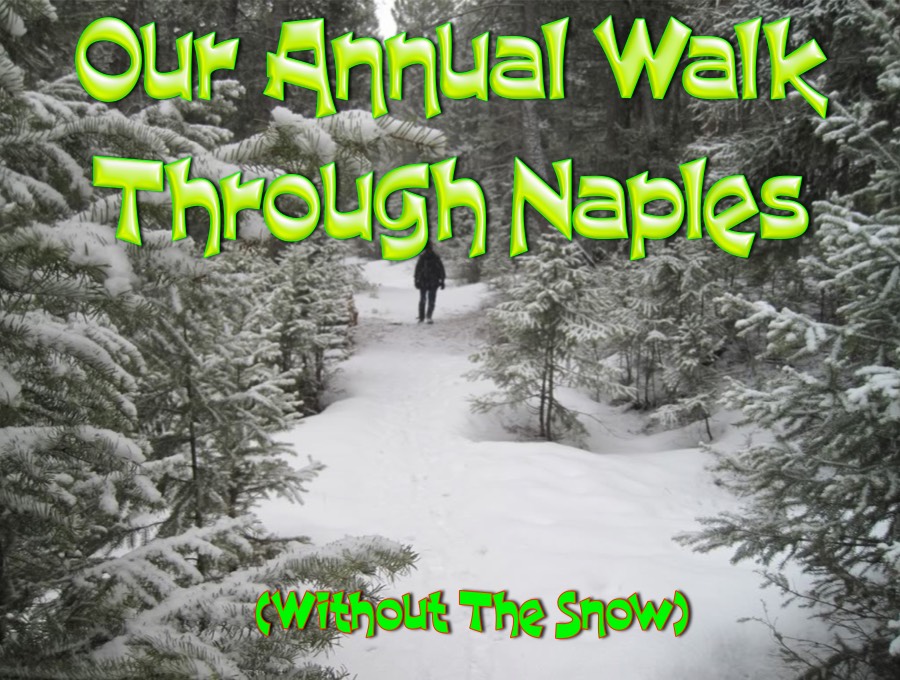
Naples is a neighborhood of Long Beach, California, United States, built on three islands located in Alamitos Bay. The islands are divided by canals which open into the bay. Most of the streets on the island have Italianate names. The center of Naples features a large fountain which serves as a popular meeting spot.
Did You Know? - In 1903 Arthur Parson built the islands of Naples in the marshy Bixby Slough of the artificial Alamitos Bay, in the mouth of the San Gabriel River. The design was by the firm Mayberry & Parker.
The concept of canals and gondolas was similar to the "Venice of America" developed by Abbot Kinney up the coast. Parson's Naples Land Company called its plans the "Dreamland of Southern California", and projected that "through the canals and under the high arching bridges gay gondoliers will propel their crafts like those in the waters of the Adriatic under the blue skies of Italy."
The project was completed in the 1920s, then rebuilt after the 1933 Long Beach earthquake.
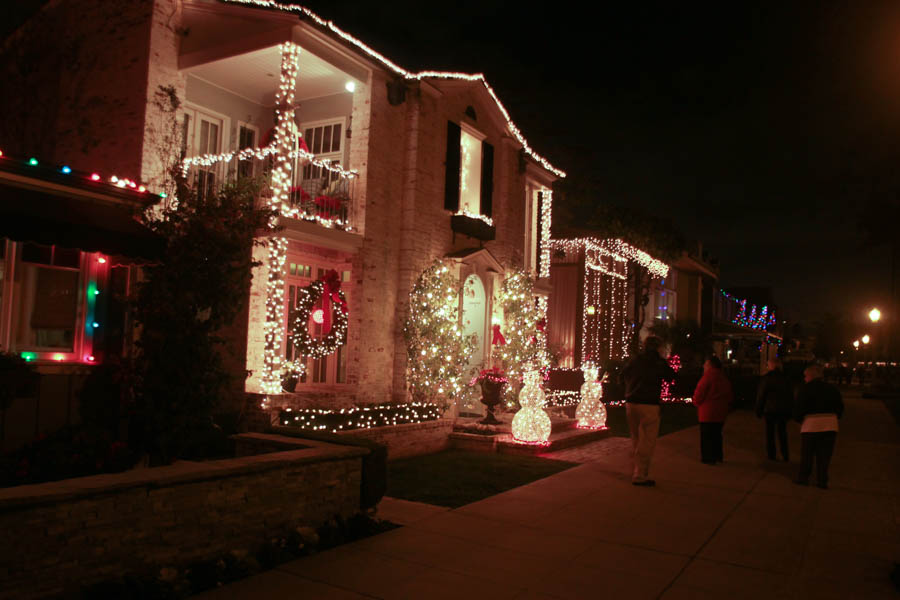
Homes on the way to the fountain
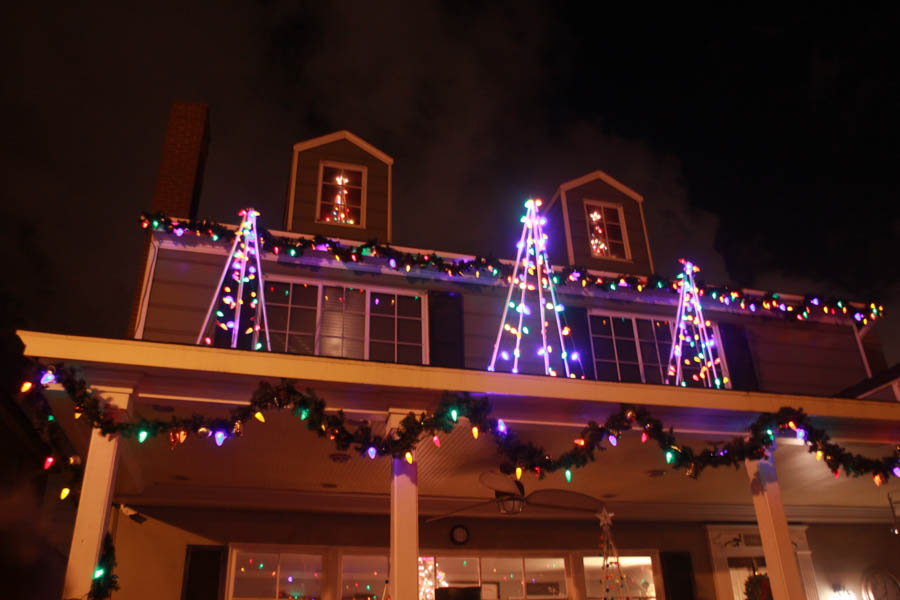
Lights everywhere


We are at the fountain

Paul takes a shot
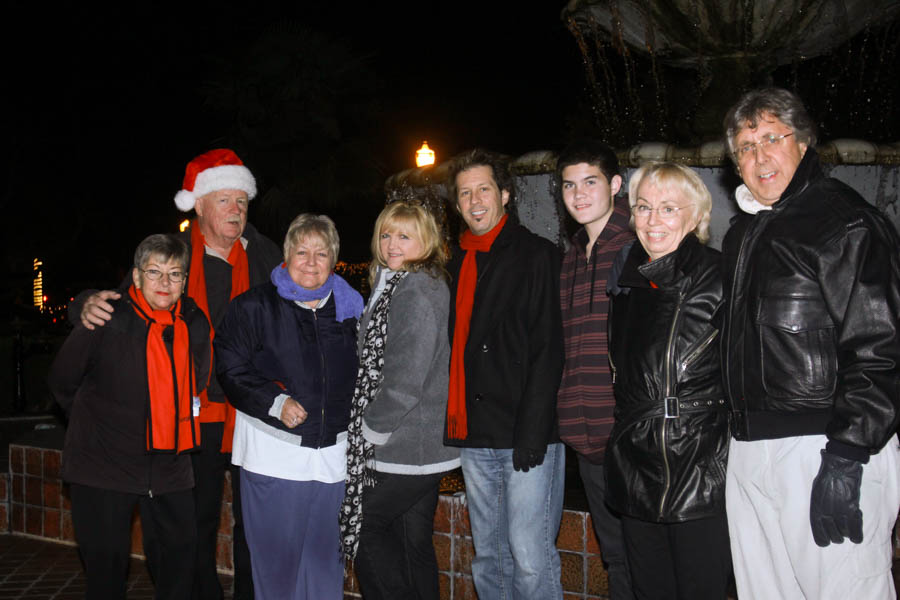
Irene takes a shot
Let's Walk

Hung high
Did You Know? - In 1882, the first Christmas tree was lit by the use of electricity. Edward Johnson lighted up a Christmas tree in New York City with eighty small electric light bulb. It should be noted that Edward Johnson created the first string of electric Christmas lights that were then mass produced around 1890. By 1900, department stores started using the new Christmas lights for their Christmas displays.

The canal separates the homes allowing for boats to be mored

Our Jewish friends also decorate - Happy Hanukkah!


Ice plant can become beautiful at night

Look carefully to the boat in the water with sightseers on board
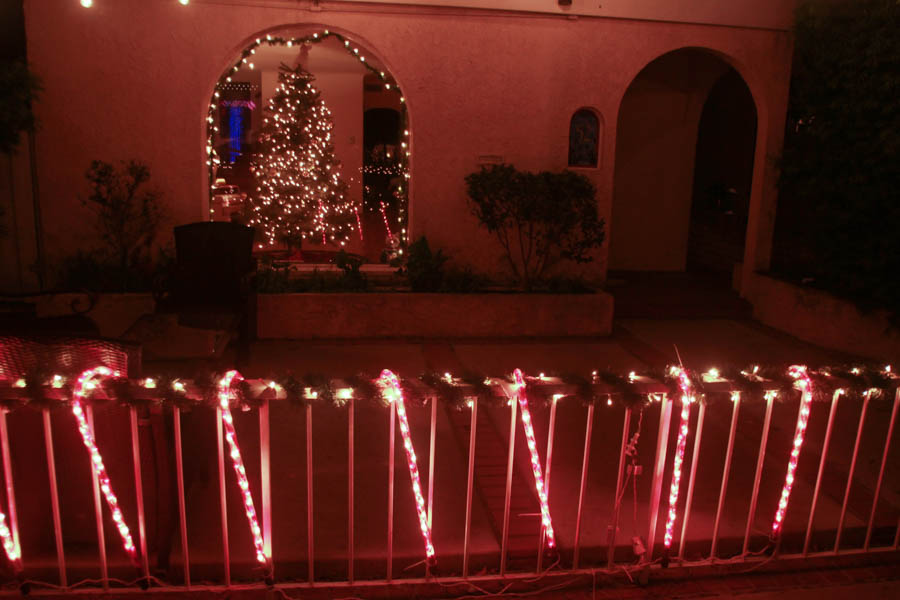
One sweet tooth coming up
Did You Know? - The first outdoor public electric light Christmas display took place in 1920, in Altadena California on Santa Rosa Avenue now called Christmas Tree Lane, you are right. Approx. 135 Deodar Cedar trees now decorated with over 10,000 lights create the oldest large-scale outdoor Christmas display in the world.

Top to bottom
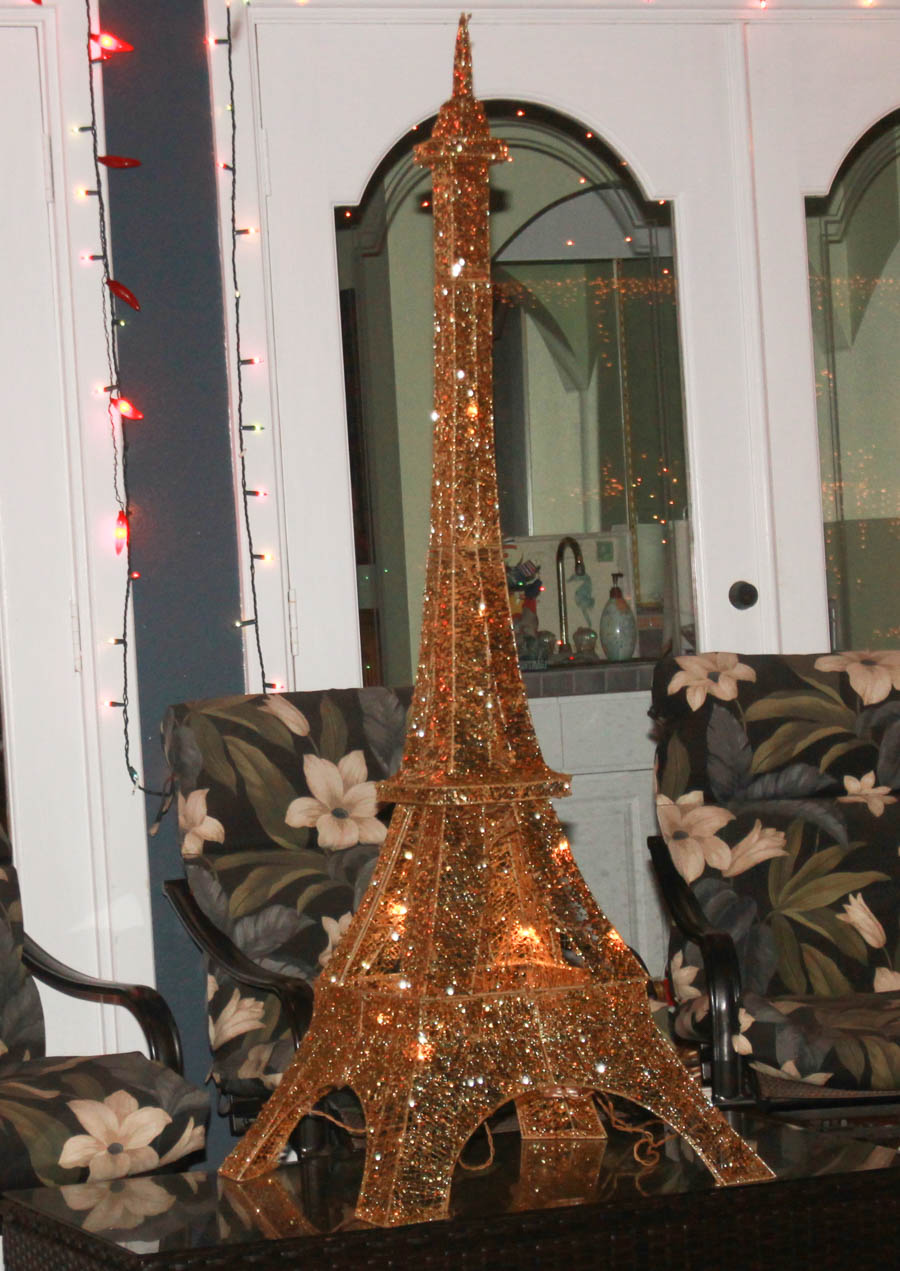
Even the Eiffel Tower is lit up
Did You Know? - The Japanese are great lovers of festivals and celebrations. Christmas is not a national holiday in Japan but since the 1960’s they do celebrate Christmas in a commercial way.
That is why every year right after Halloween, the Japanese are quick at work, installing Christmas lights, tons and tons of LED Christmas lights. They are bought in droves and installed in millions, billions maybe even gazillions. Good thing they last long.
Caretta Shiodome is a commercial shopping and entertainment complexe. The installations here are nothing short of spectacular and every year the challenge is to surprise and energize the public with a forest of blue LEDs. It’s impossible not to be awe-struck when in front of these fabulous works of light art.
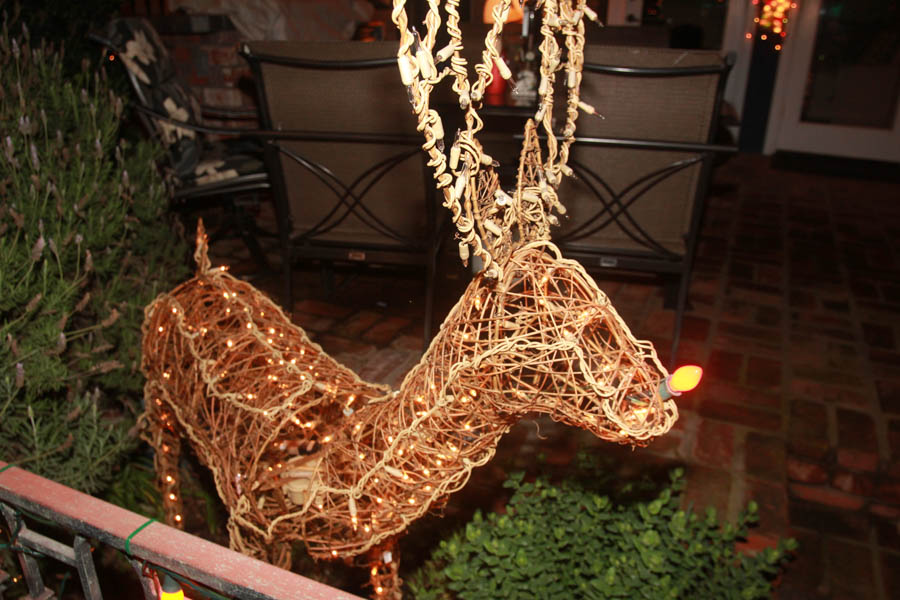
Does anyone have a carrot for this poor dear?
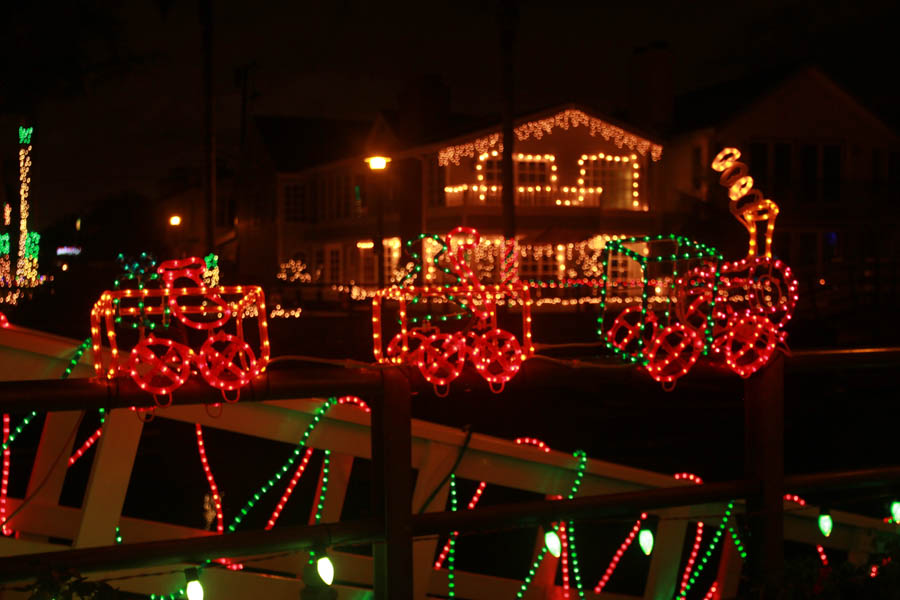
The train rides the fence along the canal
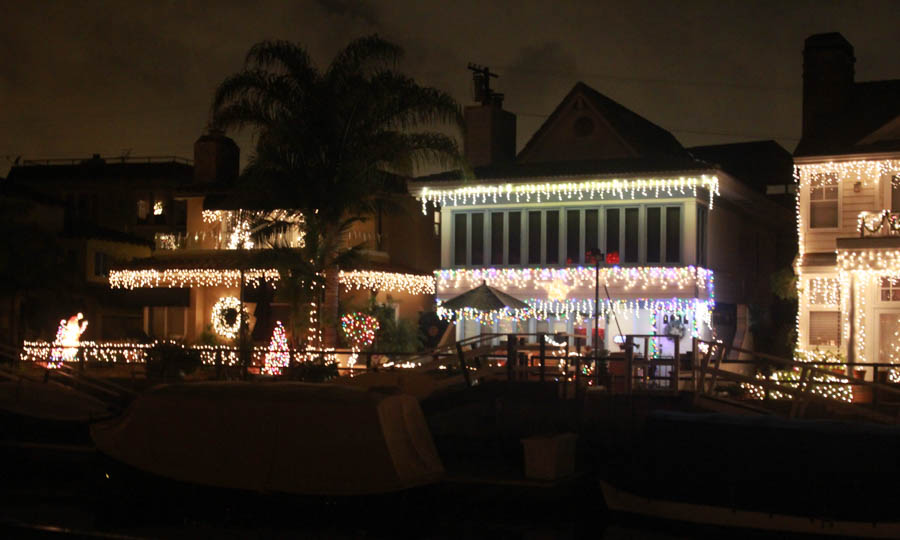
Icicles make it look cold

Geezer lights

See you on the 24th
Did You Know? - The official Christmas tree tradition at Rockefeller Center began in 1933. Since 2004 the tree has been topped with a 550-pound Swarovski Crystal star. And since 2007, the tree has been lit with 30,000 energy-efficient LED's which are powered by solar panels.

The tree on the inside is beautiful

Looks like snow on the tree
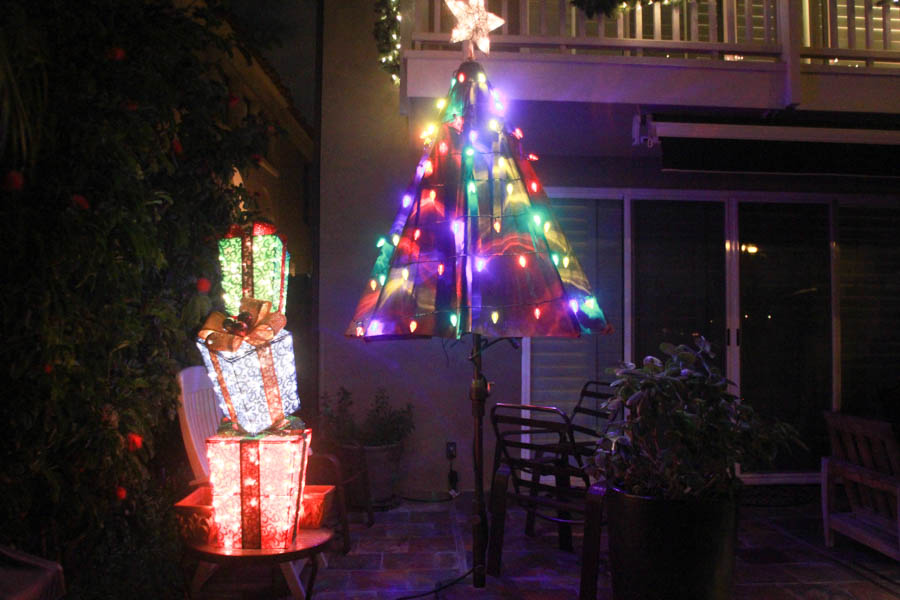
Clever people... The outdoor umbrella was partially folded up and decorated

The name of our canal... The homes on this "street" begin at 1.5 million and go up
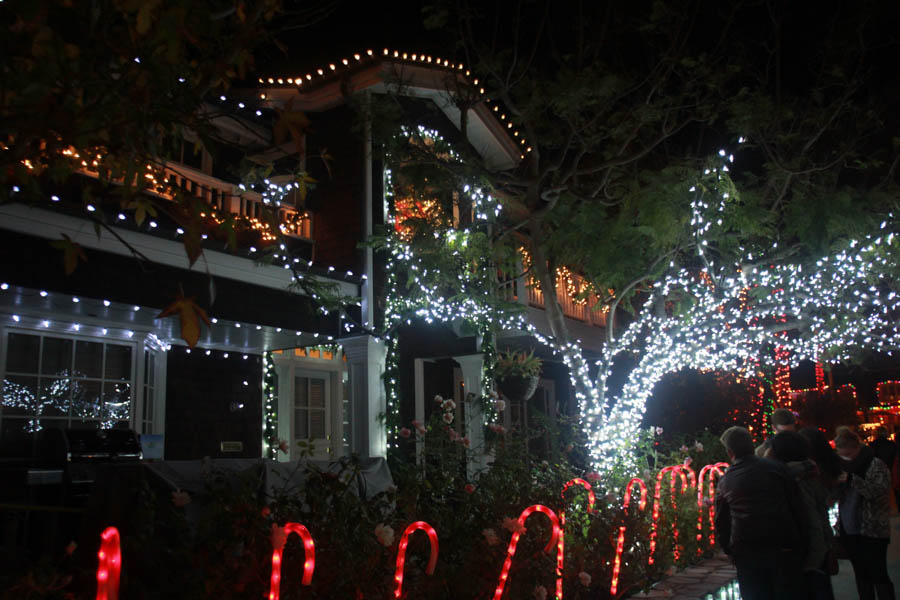
Simply beautiful
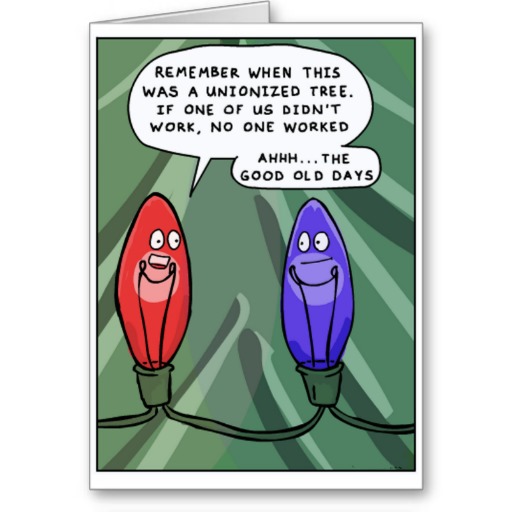

Those snowflakes are big

The house of Teddy Bears

It's fun to look at all the details


We are dressed for the occasion
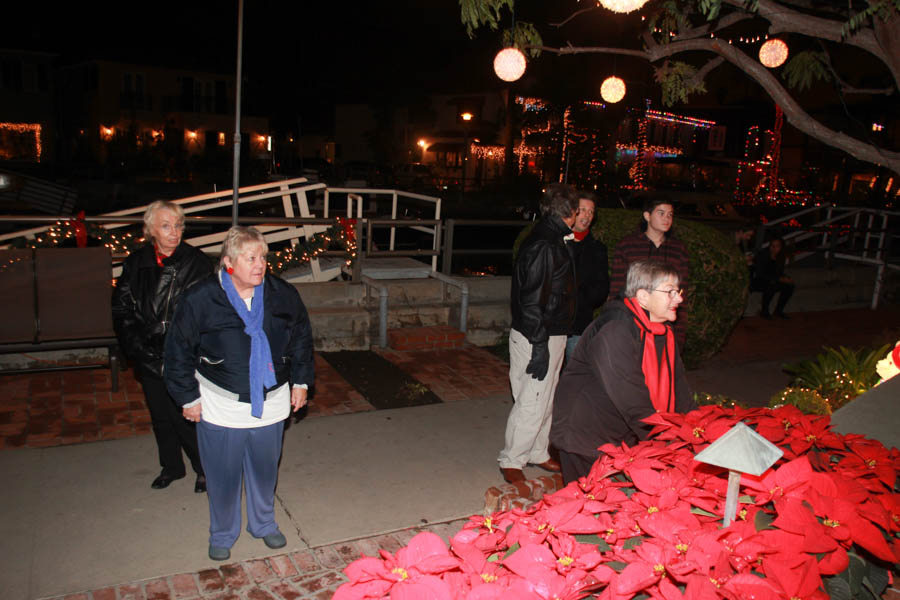
Just plain cute
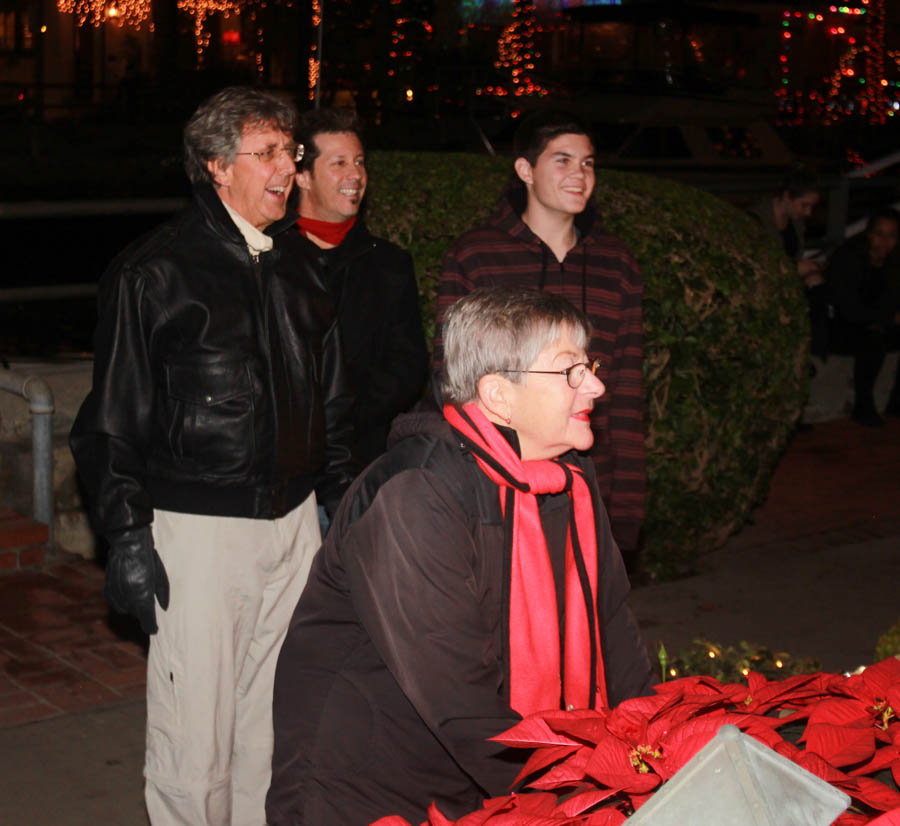
Everyone stares at the decorations
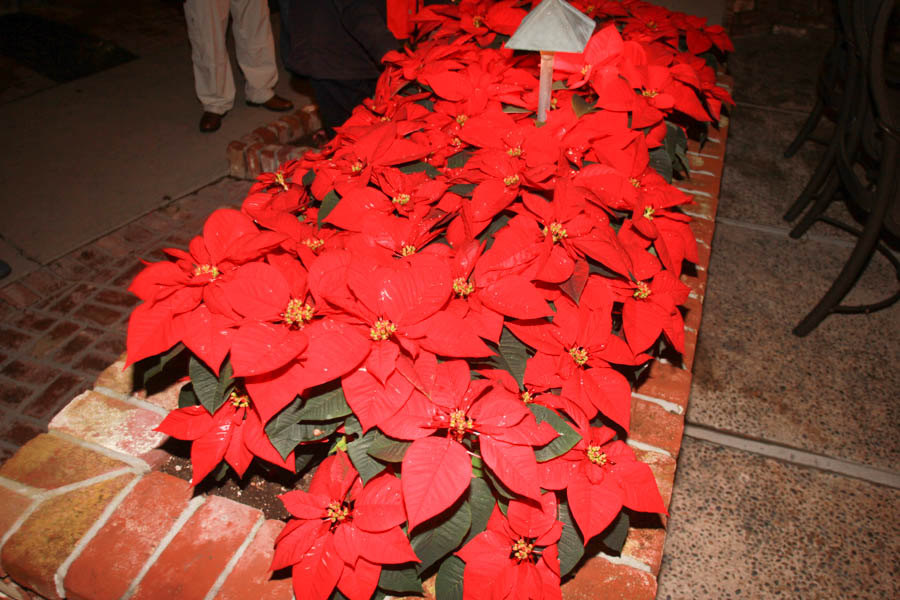
Talk about red... This is red
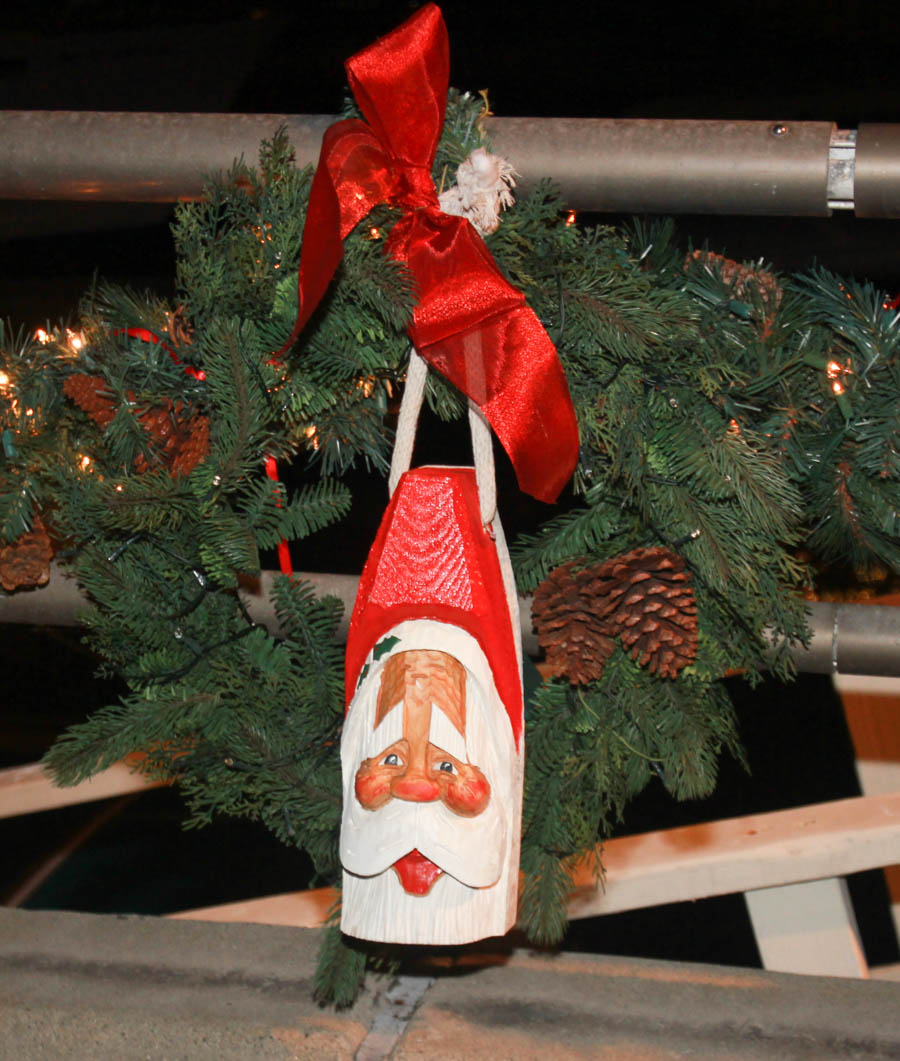
Just hanging around

Cut glass door is beautiful
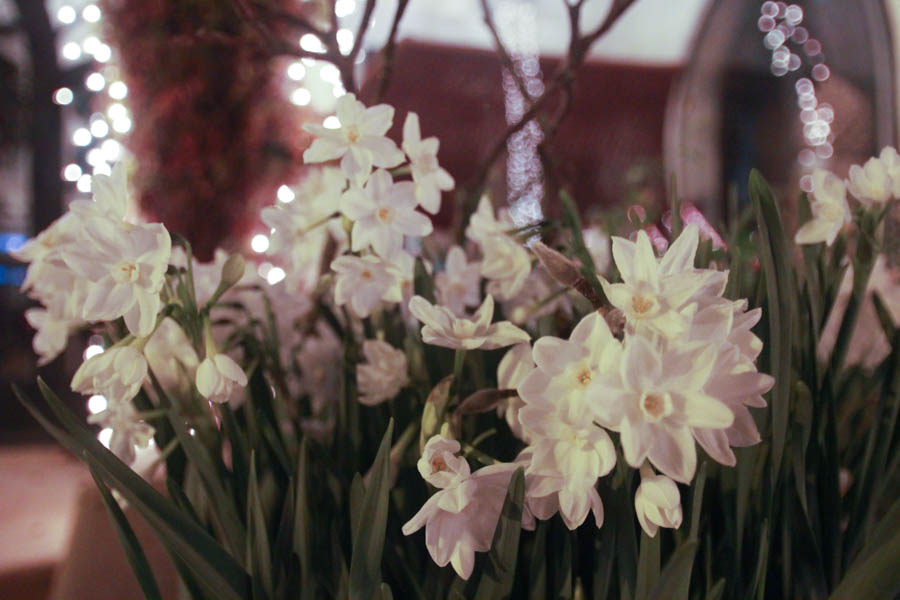
The flowers are real and doing well
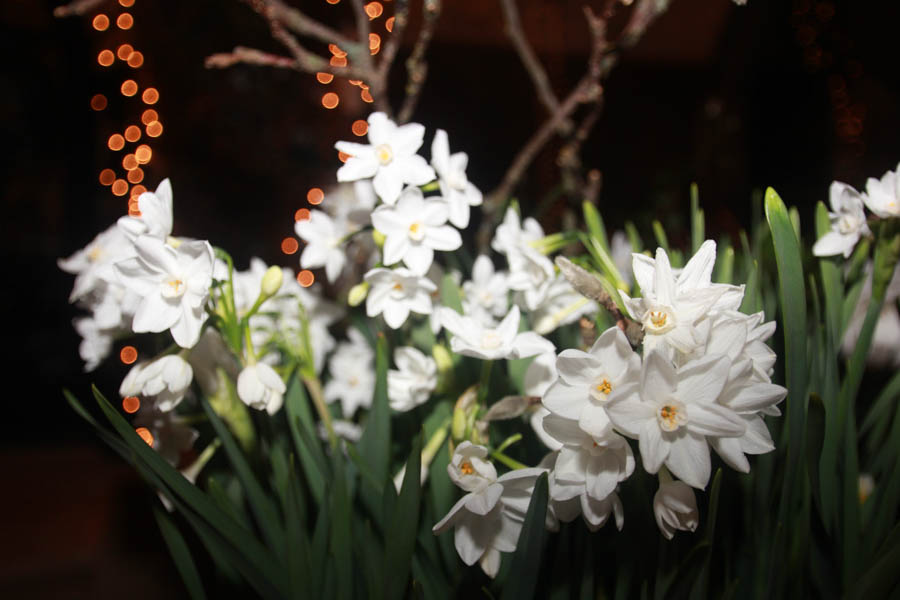
A natural decoration for Christmas
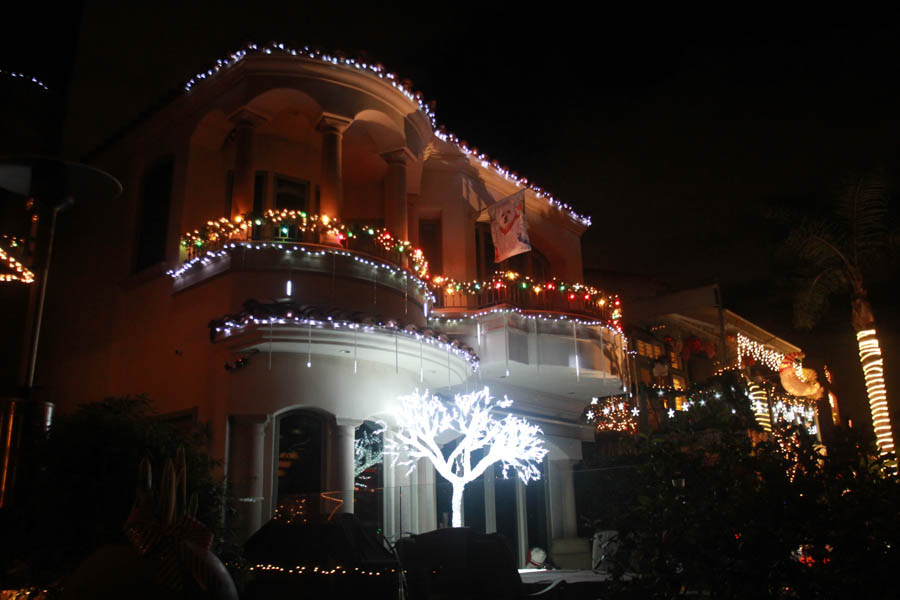
The white tree was striking

They look "beary" cold
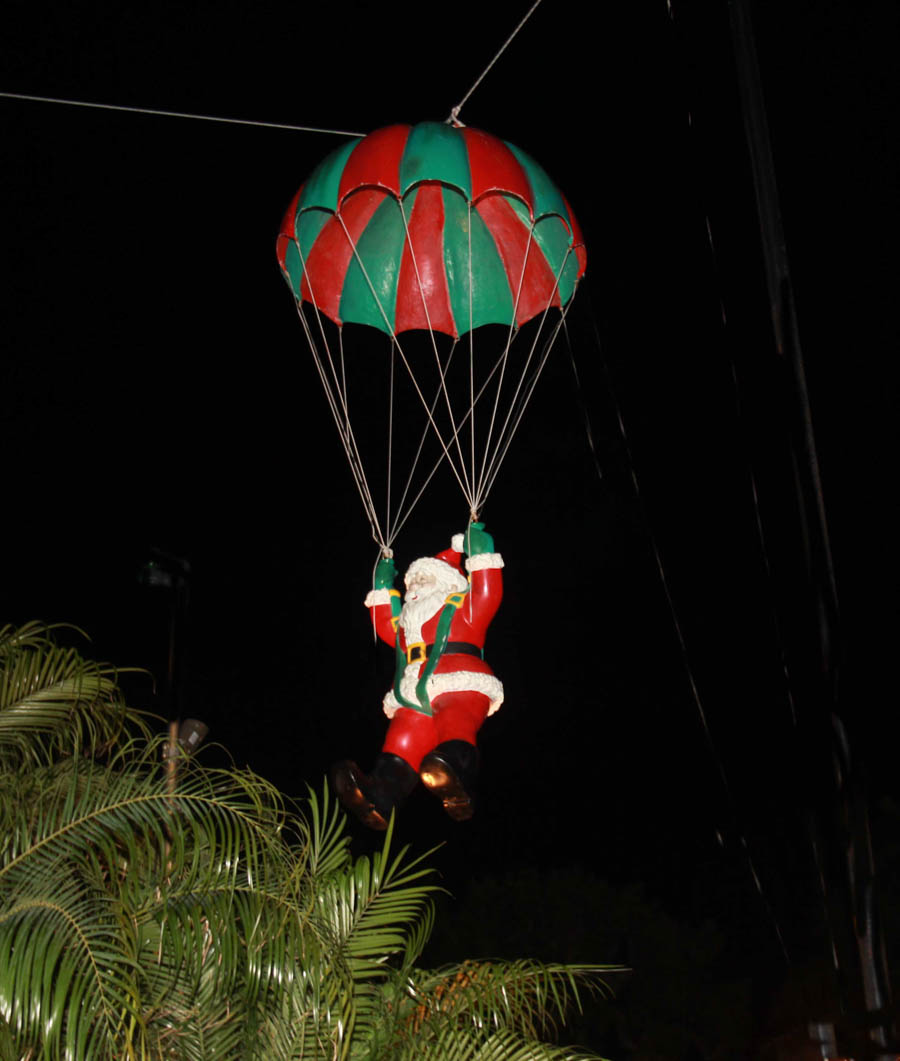
A new meaning to "Here Comes Santa Claus"
Did You Know? -
"Here Comes Santa Claus (Down Santa Claus Lane)" is a Christmas song written by Gene Autry and Oakley Haldeman.
Autry got the idea for the song after riding his horse in the 1946 Santa Claus Lane Parade (now the Hollywood Christmas Parade) in Los Angeles during which crowds of spectators chanted, "Here comes Santa Claus". This inspired him to write a song that Haldeman set to music.
A demo recording was made by singer/guitarist Johnny Bond, whose recording made use of ice cubes to mimic the sound of the jingling sleigh-bells. This inspired the use of real sleigh-bells in Autry's own recording of the song.
Autry first recorded the song in 1947; released as a single by Columbia Records, it became a #5 country and #9 pop hit.
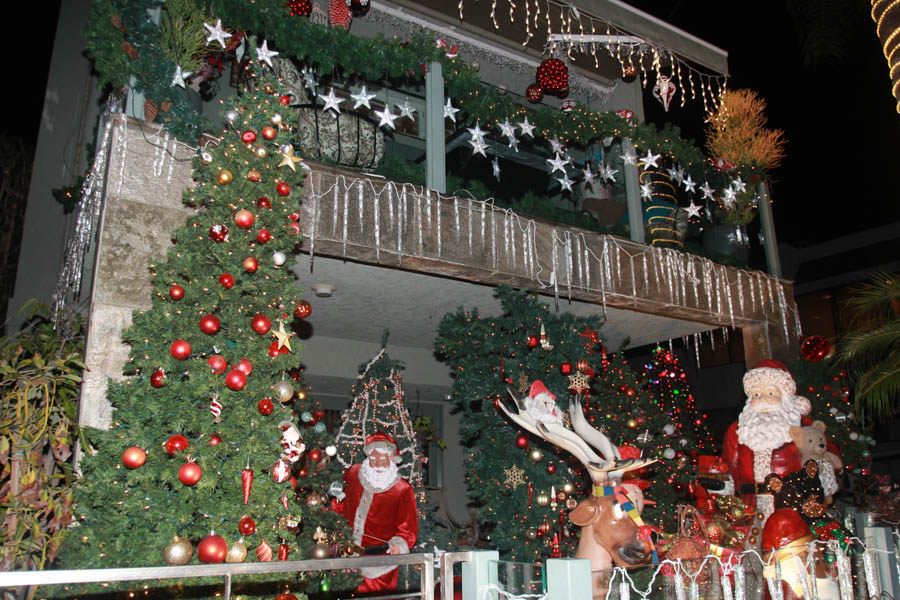
Where do they put these during the rest of the year?
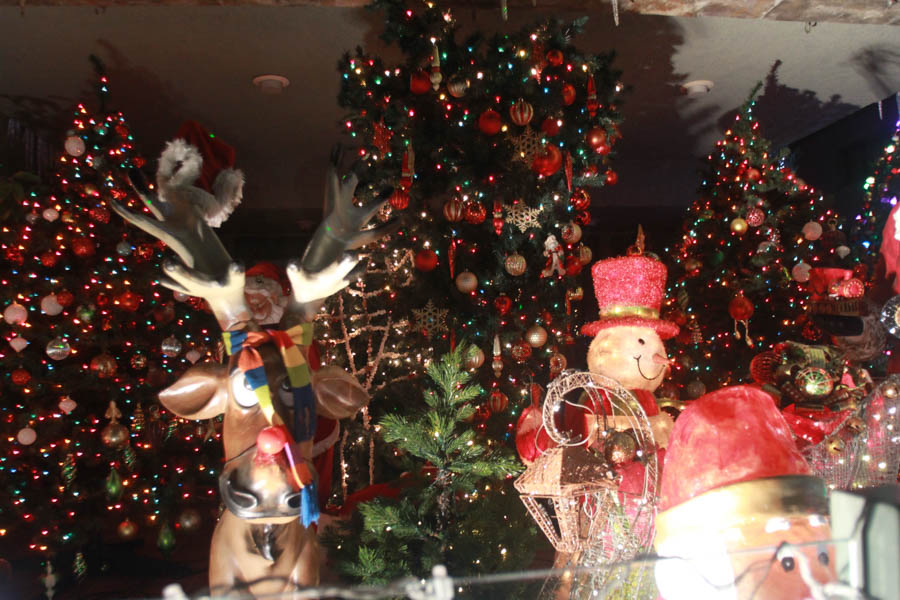
Someone does a lot of work


Obviously a "rein-moose"
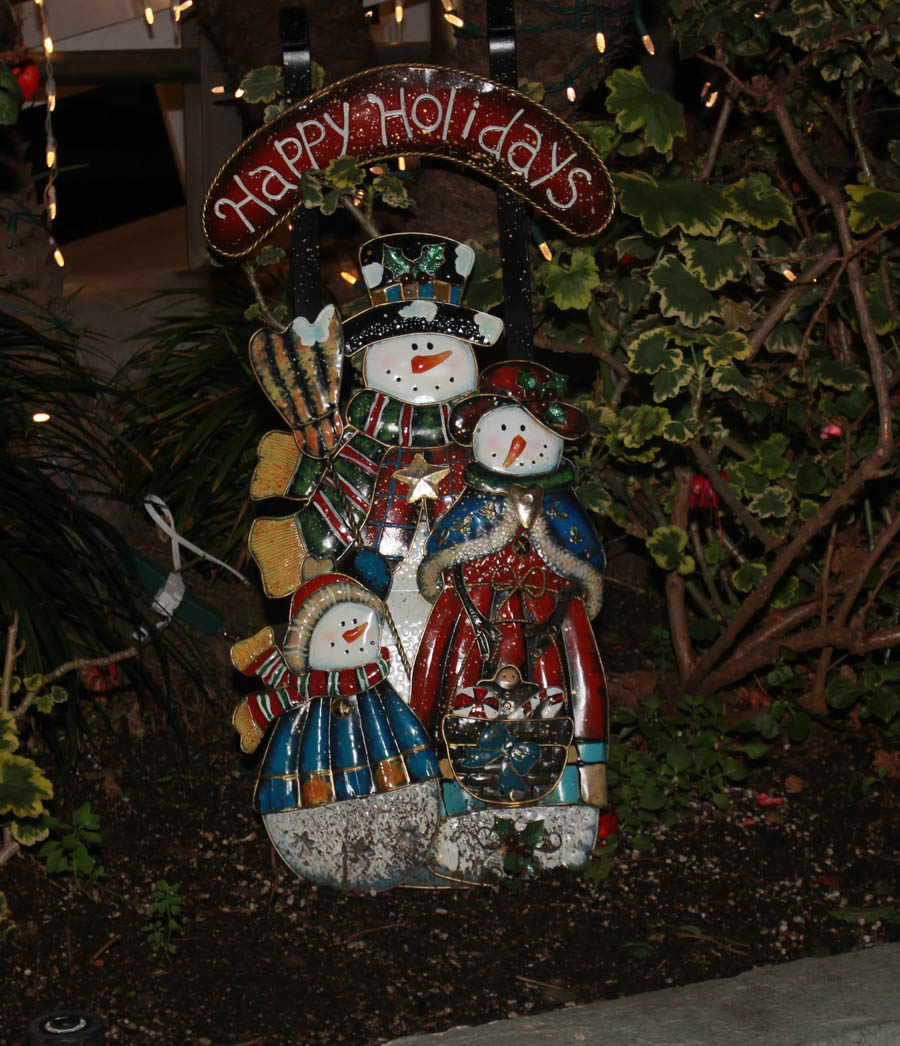
MERRY CHRISTMAS
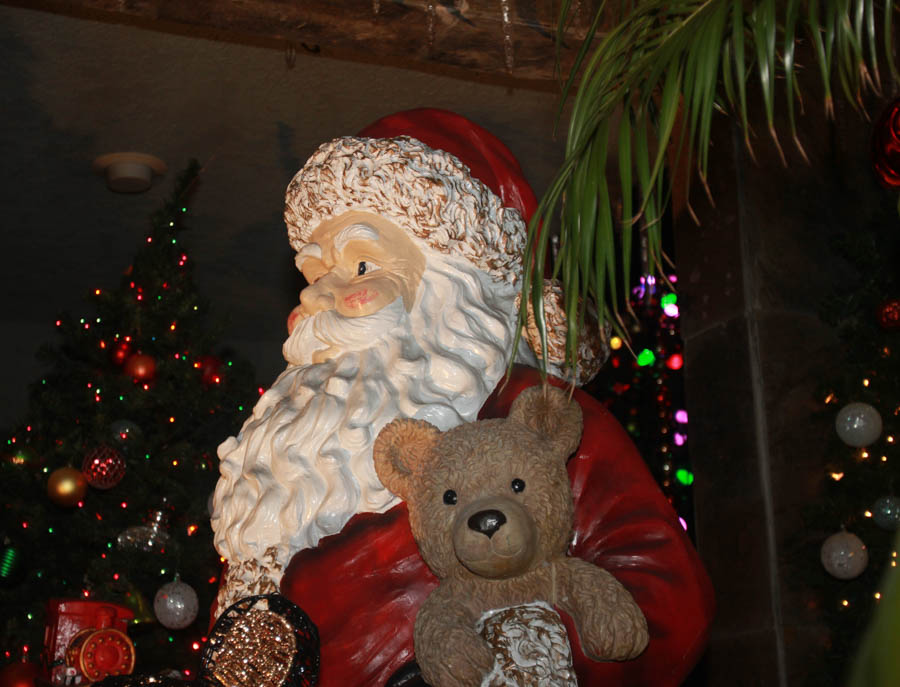
Santa and his bear

Looking down the canal is amazing... The reflections dance in the water
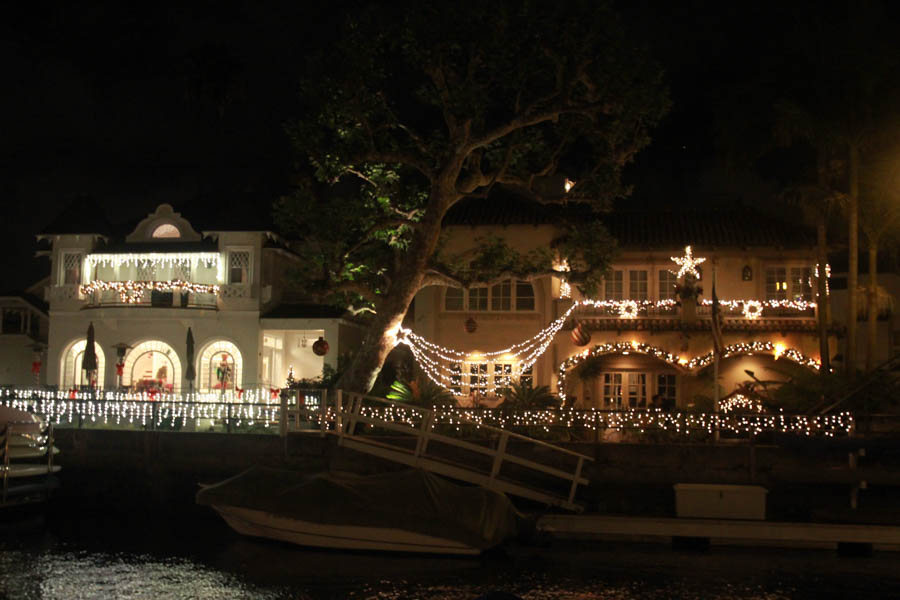
It is indeed Christmas
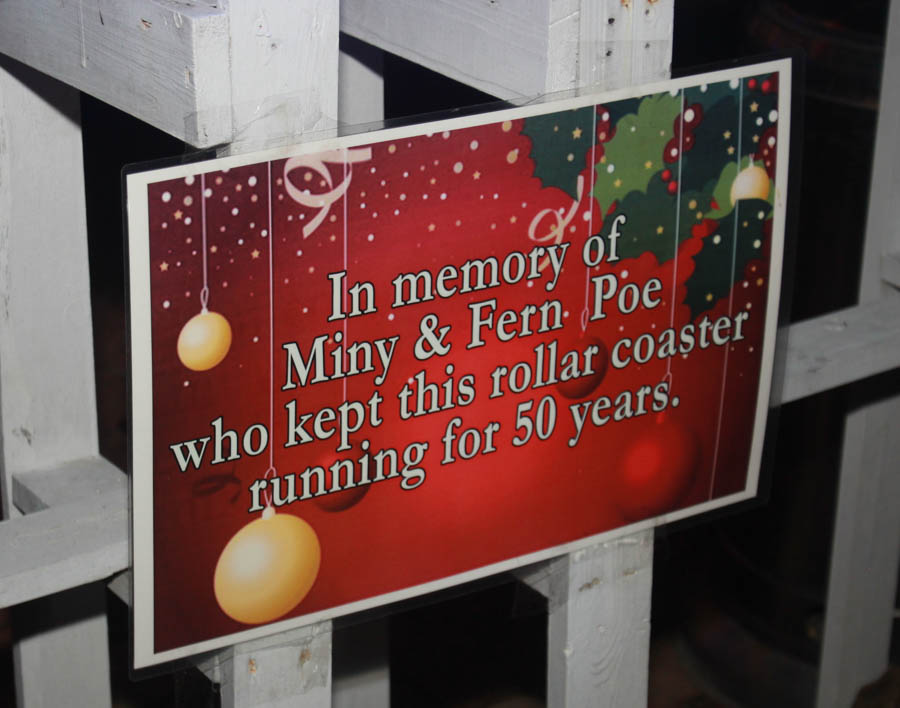
Did You Know? - Miny and Fern have always participated in the Naples Christmas Home Decorating festivities and for over 50 years have been known as the "Roller Coaster House" where a miniature roller coaster, carousel and ferris wheel delighted thousands each holiday season.
The Poe's have passed on but the tradition lives on.
The famous roller coaster will live on in the yard of good neighbor John Huntington just about six houses from the original site. Thanks to John, a wonderful tradition will survive.

They were working out the kinks in the coaster

Beautiful reflections
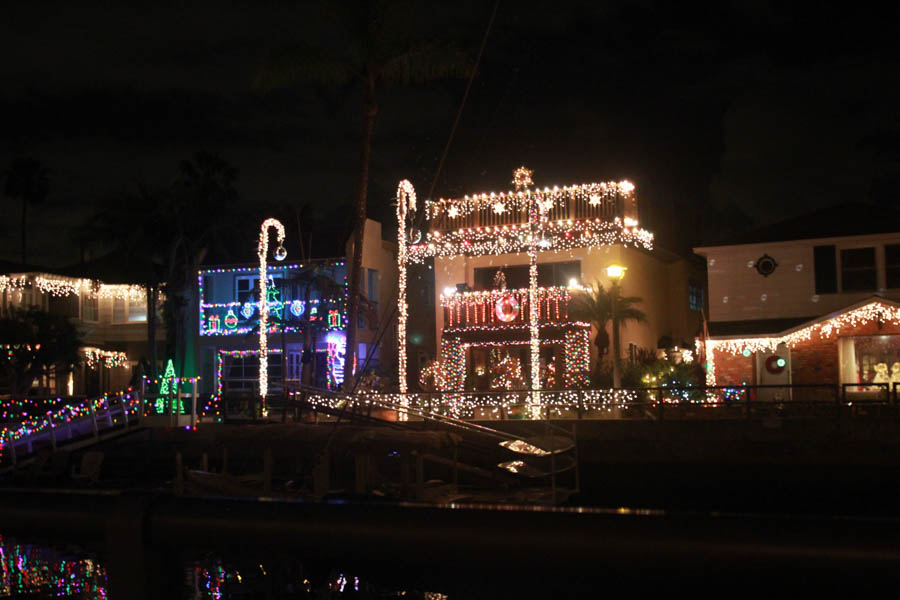
Now those there are candy canes
Did You Know? -
The original candy cane had a shape different then the modern day design. It was straight, all white, and hard.
A candy cane turned upside down reveals the letter J, which many believe represents Jesus.
National candy cane day is celebrates on December 26 in the United States.
The first candy cane was made over 350 years ago.
The first historical reference in America to the candy cane dates back to 1847. A German immigrant from Wooster, Ohio decorated his Christmas tree with candy canes.
The red and white striped candy canes were first made around 1900.
The traditional candy cane flavor is peppermint, however, it is also made in a variety of other flavors and colored stripes.
Over 1.76 billion candy canes are made each year.
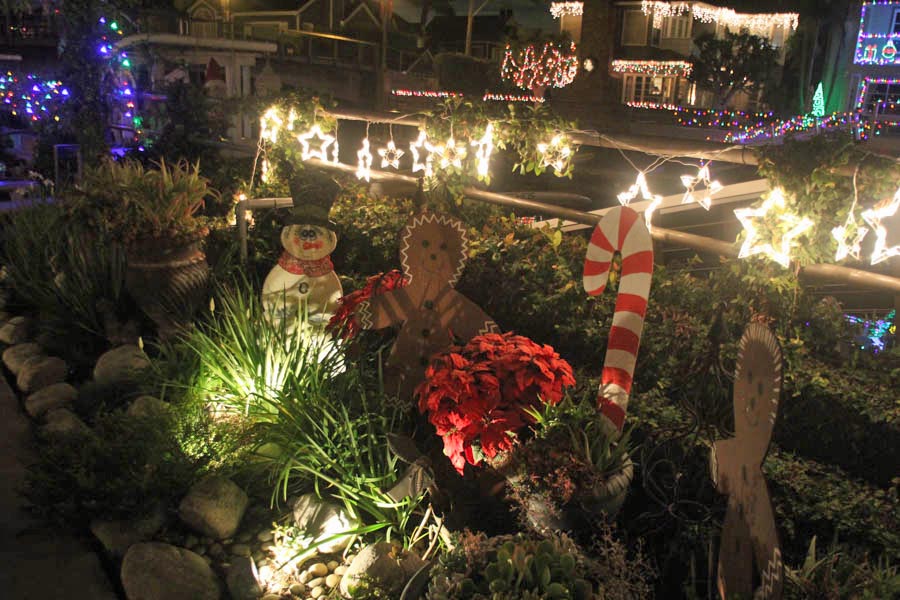
Hiding in the bushes
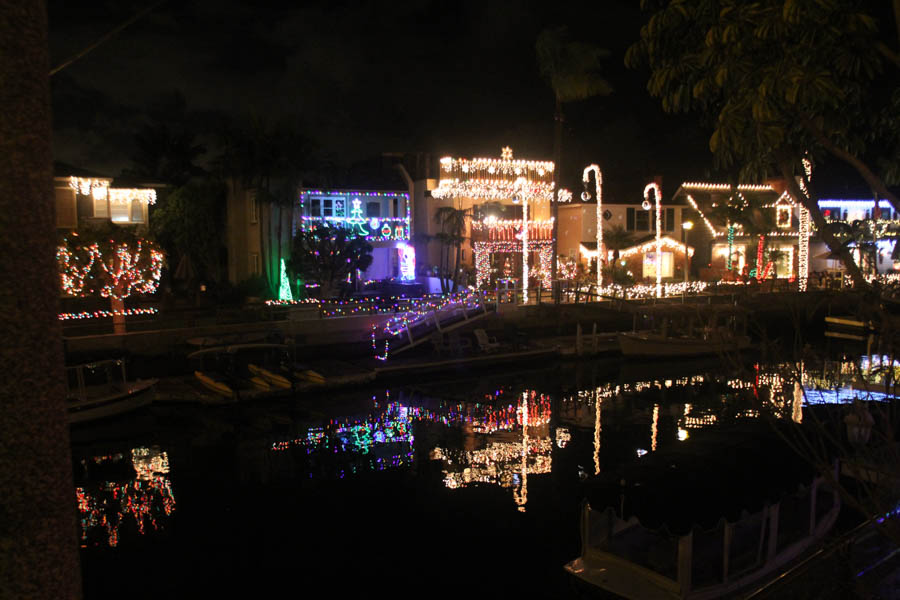
This picture looks good upside down thanks to the still water
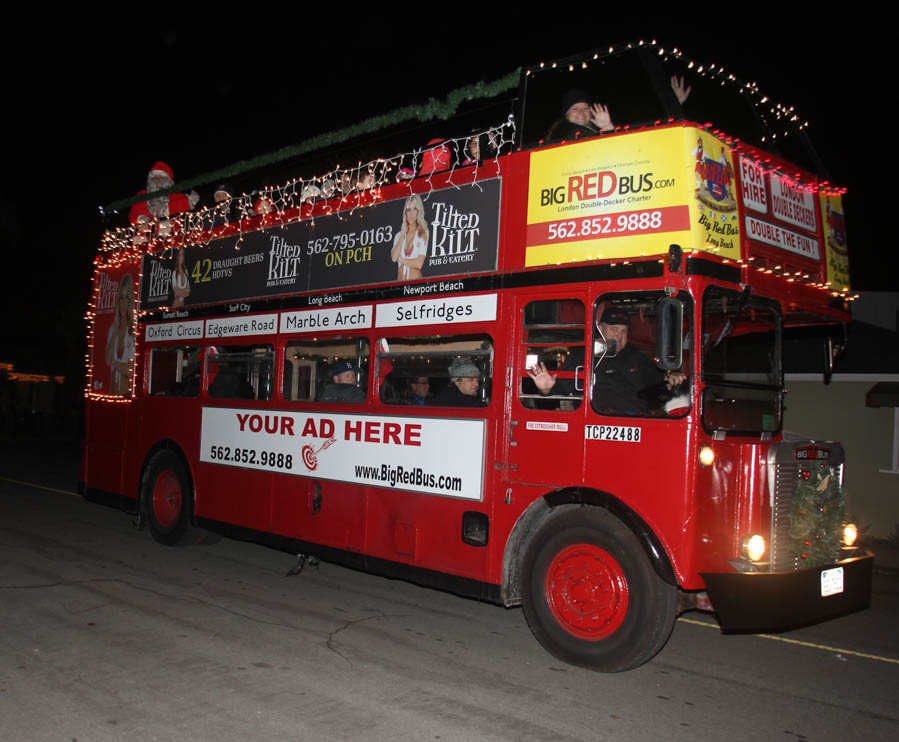
Brian and Jan felt at home

Someone is happy

Back to the car
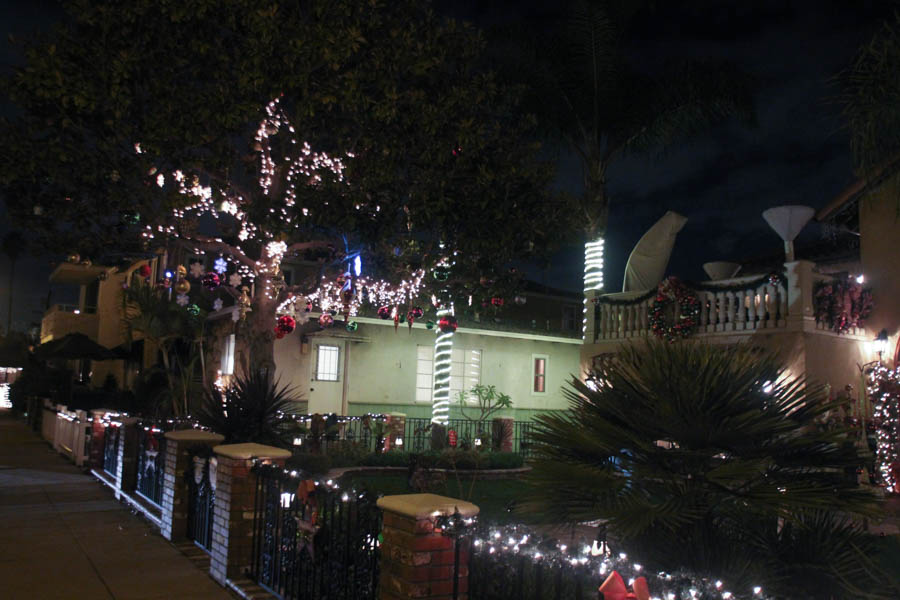
Over the bridge and away we go

